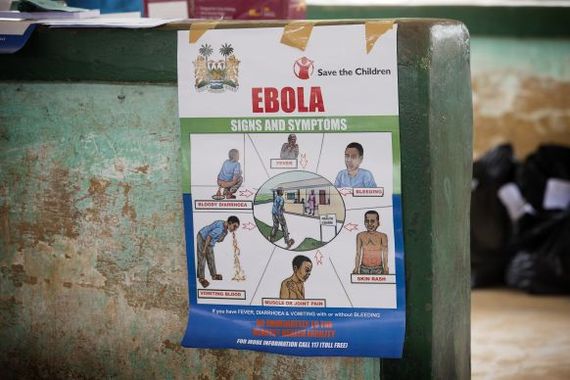Liberian Nobel laureate Leymah Gbowee writes that her mother showed up at her office recently dressed head to toe in a winter coat and headdress in 82ᴼ temperatures. Her mother explained that she wanted extra protection against the Ebola virus.
Misinformation and misunderstanding along with superstition about Ebola abound. The virus is not airborne. According to medical experts, it spreads through contact with the body fluids of an infected individual or the body of a deceased victim.
Lack of information is the fulcrum on which the spread of the virus tilts toward epidemic. With information about sanitation, abstinence from eating bush meat, and awareness that the disease results from a virus and not from evil spells or spirits, the Ebola outbreak can be contained. But this depends on timely, accurate and effective communication.
The role of communication is being recognized as critical to the well-being of people no matter where they live in the world, and no matter how well connected to the communication networks they are.
When Hurricane Yolanda struck the Leyte region of the Philippines a year ago, one of the first needs the Philippines government identified was for the restoration of the area's damaged communication capacity.
Similarly, the Religious Leaders Task Force on Ebola in Sierra Leone, chaired by United Methodist Bishop John K. Yambasu, listed a comprehensive communications strategy as its first priority in a longer document spelling out response to the crisis.
We live in a connected world, and lack of accurate information, coupled with incomplete communications infrastructure, is a matter of life and death. Ebola, as the world now understands, is only a plane ride away, no matter where you live.
At United Methodist Communications, we live by the phrase, "a clear message saves lives." But we also understand that the ability to communicate is equally important.
In the Philippines, we helped to restore Internet connectivity and provide aid agencies with tablets, software and training to enable them to identify where aid was needed, coordinate with each other, and communicate with and distribute aid to survivors.
In the Ebola crisis, we are supporting the efforts of those already at work disseminating accurate information in the countries affected. We are also consulting about infrastructure and distribution tools that can reach the most people with accurate information.
Today, the ability to communicate and the quality of information that is communicated are critical to well-being in local communities and to people in every other part of the world. Communication -- and the ability to communicate effectively -- is not a simple matter of technology, tools and software. It is a matter of strategic importance.
In many emergency situations, communication capacity precedes other forms of critical aid. In the Philippines, communication preceded material aid. Communication had to be restored to get food, medicine and construction supplies to those isolated and stranded in places cut off from others.
In the Ebola crisis, communication precedes prevention and treatment. The contagion cannot be contained without greater effort at sanitation, isolation of sick people, and proper handling and burial of the deceased. And this has to be communicated effectively and widely. In these circumstances, a clear message saves lives.
Over a lifetime of covering natural and human-caused disasters and writing stories about poverty and development, I've come to see that communication is more than the tools we use, more than the software that powers them, and more than the technology that drives the devices. It is a strategic asset that is important to our well-being.
In some circumstances, communication is aid, as a wonderful video produced by Infoasaid demonstrates.
And, if we believe (as I do), that it is God's intent for all people to find meaning and purpose in life, and to flourish, then communication is actually doing theology. It is a way to fulfill our beliefs and follow our values.
